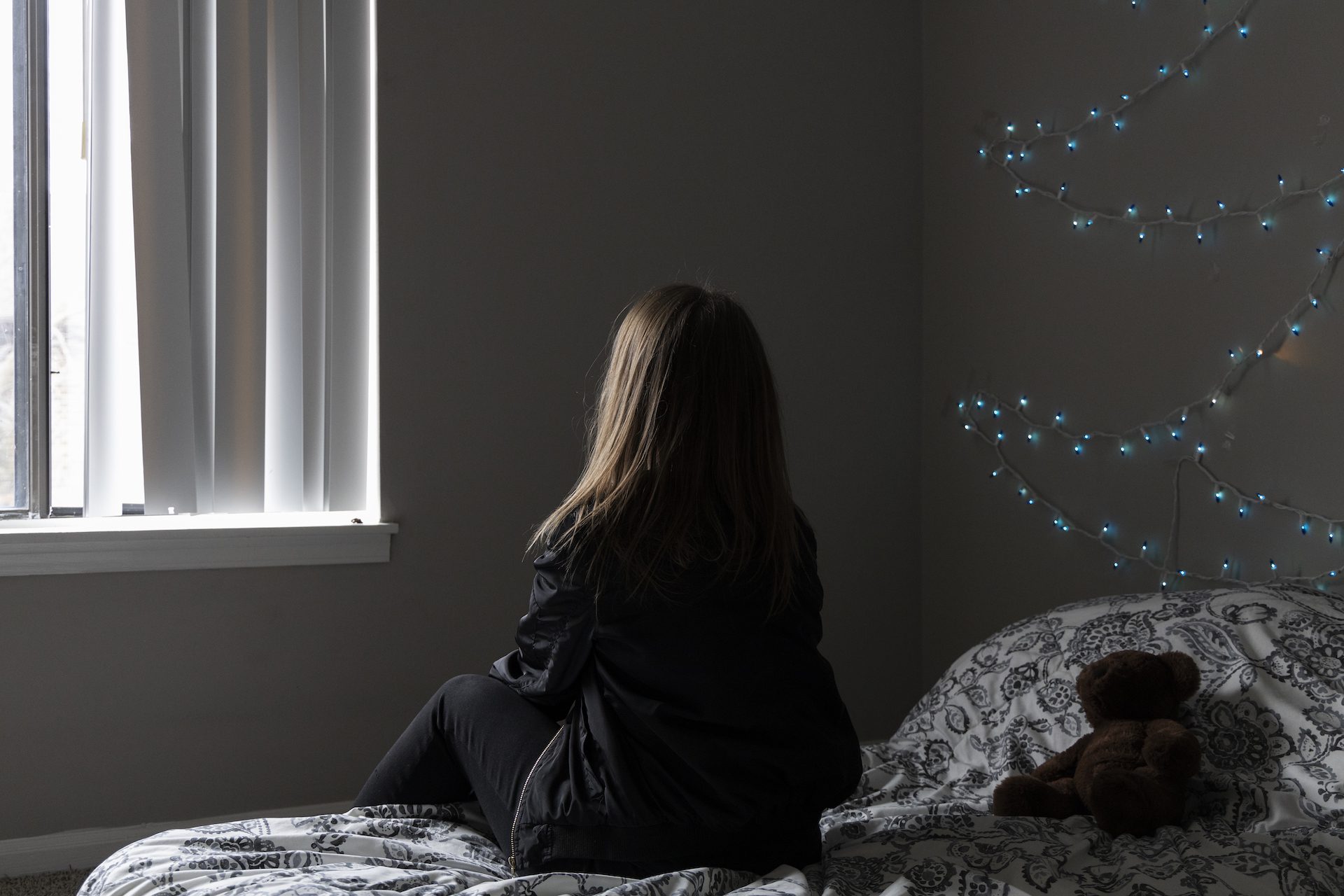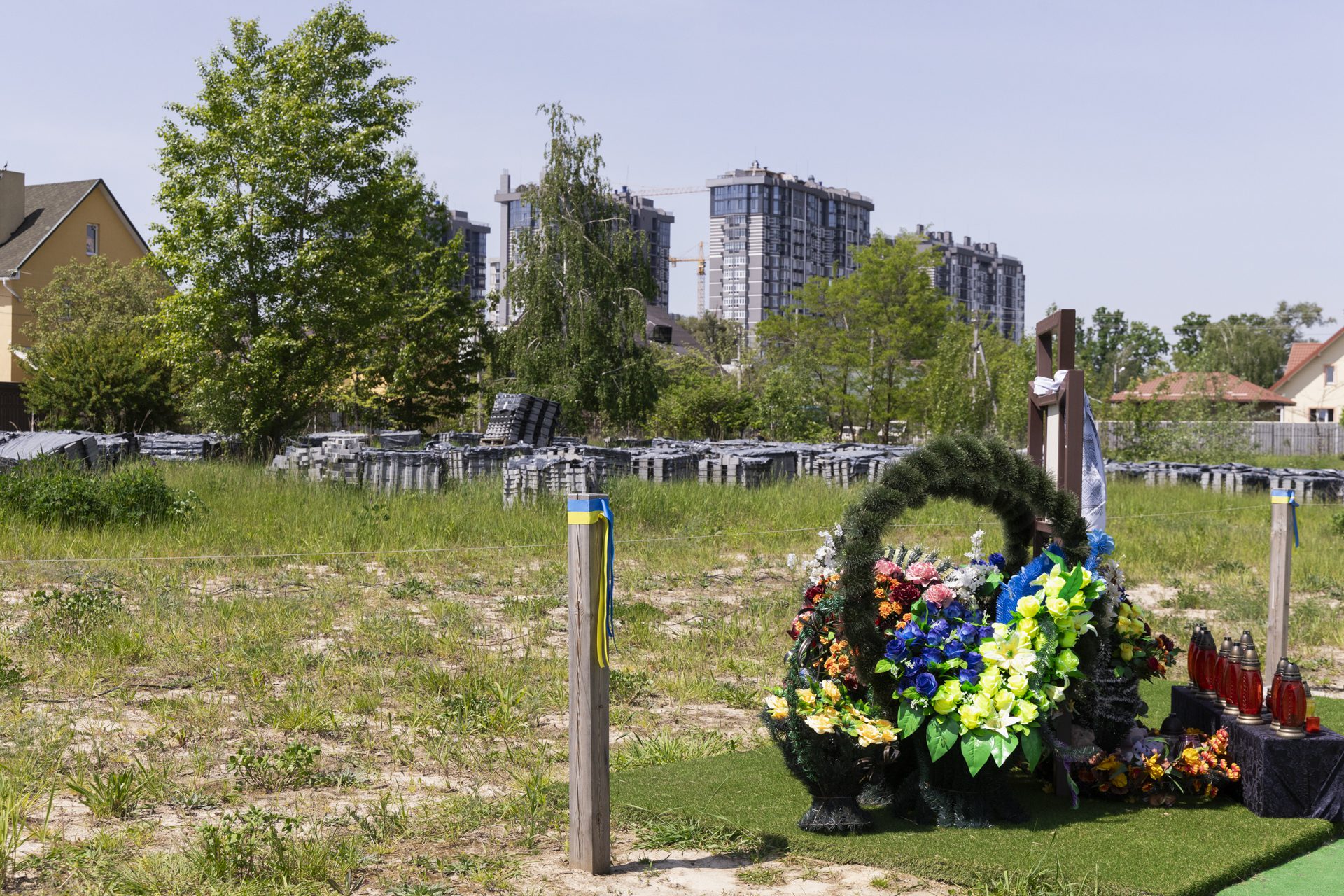 J. Daniel Hud for Borderless Magazine
J. Daniel Hud for Borderless MagazineAfter fleeing the war in Ukraine, Ana lives paycheck to paycheck in Illinois. Amid the lasting trauma from the Russian invasion — and the heartbreak of leaving family behind — she longs to return home.
Millions of Ukrainian refugees fled their homes since Russia invaded the country over two years ago. More than 30,000 Ukrainians have sought asylum in Chicago.
Ukrainians displaced by the ongoing war face a precarious future. Many have concerns about the safety of their loved ones in their homeland.
Among them is Ana from Bucha, one of the first parts of the country to fall under Russian occupation. Though Ukraine’s armed forces eventually liberated the area, what’s left behind are decimated buildings and cavernous scars from death and destruction.
News that puts power under the spotlight and communities at the center.
Sign up for our free newsletter and get updates twice a week.
She is among one of several thousand Ukrainians residing in Illinois. She arrived in December 2022 on humanitarian parole, which is set to expire soon. She anxiously awaits what lies ahead. Still, she is holding out hope for her status to be renewed.
RefugeeOne, Chicago’s largest resettlement agency, has helped over 5,000 Ukrainian refugees find homes in the city. However, changes in federal government policy in October 2023, halted access to public benefits, work authorization and legal aid for new arrivals from Ukraine. RefugeeOne has continued to support Ukrainian newcomers with English classes, wellness programs, youth activities, employment assistance and limited housing aid.
Borderless Magazine spoke to Ana about leaving Ukraine, the trauma of war and her search for stability.
Owning my own apartment was my biggest dream.
I invested in an apartment in Bucha in 2017. I renovated it and was incredibly happy. It was something I strived for. It took me a while to renovate it. Then, the invasion happened on Feb. 24, 2022. The explosions and destruction changed our lives. Outside my window, unarmed civilians and innocent people were killed and shot at.
We lived through this occupation, and eventually, these towns were liberated by Ukrainian forces. But everyone around us was hurt. There were people who lost loved ones. Somebody lost their kid. Somebody lost their husband. Buildings were ruined, and it was tough.

Our days were filled with terror. Russians would drop bombs on apartment buildings. People would hide in the basements. There was no escape. If people tried to leave, they would be shot. I could hear screams coming from buildings and basements.
That was across the street from my house. My neighbors.
I lived in my seventh-floor apartment during the Russian occupation. I felt like a rat in a cage — like you’re trapped. As bombs were dropped, we would head for shelter in the basement as buildings around us collapsed and people died. And you can’t do anything about it.
I tried to escape the epicenter of the war by leaving the city to a family summer house in Borodyanka. I thought it would be safe. But we didn’t have electricity to make phone calls or communicate online.
At the time, the Russian soldiers occupied Borodyanka. I bumped into a forester who detailed routes to avoid because Russian soldiers were stationed there. But he told me: “I cannot promise you will be safe. I cannot promise that you will get out of this alive.”
I took the paths he advised and escaped. The following day, that same path had been overrun by Russian tanks. Anyone trying to escape through that route was killed.
Along the escape journey, I was separated from my mother and it took months before I would see her again.
Read More of Our Coverage
In some fleeting moments, I was able to connect with an old schoolmate, now living in New York. She was so afraid for me and told me to come to the U.S. because Ukraine was not safe.
In April 2022, I crossed the border from Ukraine to Hungary, then to London, and finally made my way to Mexico. I didn’t come with much, just a backpack.
When I got to Mexico City, I wanted to cross the southern border, but then I got word that Biden had closed the border. I stayed at a refugee camp housing other Ukrainian families in Mexico City for about a month. There were mattresses on the ground with tents set up. Every day more Ukrainian families kept showing up.
Unfortunately, this camp was next to the airport, so the sounds of planes landing and departing triggered me. It reminded me of the bombs that were dropped near my apartment. I would hide under the table, but other people didn’t have the same reaction. Most of them were from Western Ukraine, which wasn’t occupied by Russian forces.
During my time in Mexico, I worked remotely as an accountant. I was able to get a SIM card, which helped me get in touch with my mom and friend. In April 2023, Biden passed Uniting for Ukraine (U4U). Unfortunately, my friend in New York could not sponsor me. I needed to find a sponsor and many people in the U.S. wanted to help, but I wondered if they knew what that entailed. It was difficult to find a sponsor because I worked as an accountant at night and volunteered during the day to help other Ukrainian families arriving at the airport.
My friend connected me with a Russian woman who is a U.S. citizen living in D.C. We connected online on Facebook and she eventually sponsored me.
While I waited for approval, I returned to Ukraine for four months to help my mom who had also recently returned after the occupation had ended. I checked on my apartment, quit my accountant job, and helped my mom get resettled. I got travel authorization to go to the U.S. and D.C. to see my sponsor. She was very friendly and helped many Ukrainians.
I was encouraged to come to Chicago for a job opportunity in December 2022, but when I arrived a few months later the job fell through.
In those early days, I applied for jobs at restaurants and would follow up right after applying but I wasn’t able to land anything. I eventually worked at a fast-food restaurant but switched jobs several times because I felt the conditions were dangerous. I also worked in the freezer stock section at Walmart and was an Amazon delivery driver. The salaries are so low, and the rent is so high.
I joined Harper College to learn English and now have two jobs as a delivery driver for two fast-food restaurants.
My goal is to become a certified accountant in the United States. I plan on making advanced parole for my mom because her health is not good. If I were to leave the U.S., I would not be able to return.
I am on U4U parole now. The second step is Temporary Protected Status, which I applied for when I first came to the U.S. But there is no answer yet and my humanitarian parole expires in August.
I’m so grateful to other Americans, Biden, and everyone who’s helped, but it is challenging. During my time here, I’ve lost an aunt, my grandma got cancer, and my dog died.
Now, I’m hoping to eventually return to Ukraine.
At the moment, I’m just living paycheck to paycheck.

